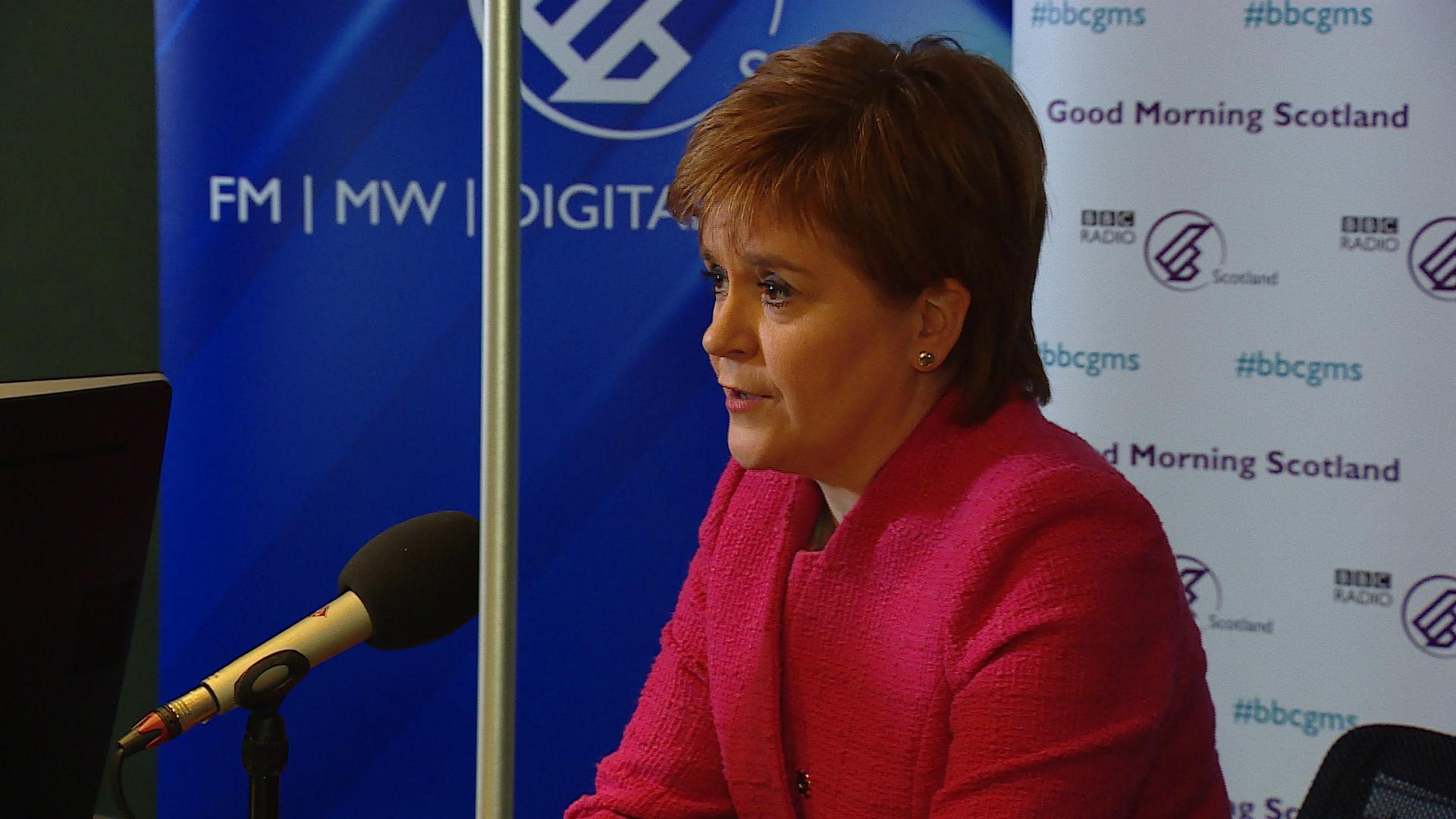Tricky tax questions for Labour
- Published

Mr Leonard wants to use Holyrood's tax powers to raise a further £500m for public services
Tricky thing, tax. Particularly income tax - that "temporary measure" introduced by Pitt the Younger which has since become a permanent feature of our polity.
Most folk, I reckon, know they need to pay up to fund public services. But it is an unwise politician who confuses toleration with contentment. Very few thrill to the prospect of paying tax, especially when that levy is due to increase.
Such is currently the case in Scotland. Derek Mackay, the finance secretary, has set out plans to raise an extra £160m from income tax, with the burden falling on higher earners while the lowest paid are protected or helped with a cut.
However, Mr Mackay's carefully considered plans are not immutable. Indeed, they are likely to change in response to the requirement to secure a majority at Holyrood.
It seems all but certain that there will be a deal with the Greens in which extra dosh is delivered to local government, funded by further tweaks to the tax code.
My guess? Mr Mackay takes extra cash from higher earners, thus removing the "anomaly" in his current proposals whereby those earning around £50,000 actually benefit from a reduction in tax, owing to the changes introduced at lower levels.
One might almost think that this "anomaly" had been deliberately created in order to leave room for a later concession to the Greens. I could not possibly comment.
But there are other views on offer. The Tories, for example, say tax levels in Scotland should not be higher than in England, for anyone.
National debate
And today I gained a little more insight into Scottish Labour's thinking by interviewing the party's leader Richard Leonard.
During the party leadership campaign, Mr Leonard gave little away on tax - other than to urge a national debate on the topic. This contrasted with his rival, Anas Sarwar, who set out fiscal plans in some detail.
However, Mr Leonard did indicate then that he might support an increase in the basic rate (currently 20p across the UK.) Commentators noted at the time this was different from the approach favoured by Jeremy Corbyn.
It would appear that the campaign outline thinking has survived into Opposition office. Mr Leonard tells me he will unveil full details in a week or so - but he updated me on his approach.
He regards the SNP plans as "tinkering around the edges". Rather than £160m, he wants to raise three times that amount, some £500m, for public spending. His aim, he declared, is to take austerity economics out of the equation for Scotland.
To fund that? Mr Leonard was keenest to talk about his plans for a new 50p top rate. Rejected by Ministers on the grounds that "behavioural change" might cut the level of cash actually available to Scotland.
Political calculation
But, when pressed, he conceded readily that such a level of public spending would involve those further down the income range in paying more. Indeed, it would require an increase in the basic rate.
Which brings us back to the question of balance. Is there a point at which income tax increases have a deleterious impact upon the broad economy? Do they discourage investment or drive wealth creators from Scotland?
This is an arithmetical sum but also a philosophical and political calculation. Opinions, I suppose, will vary along a spectrum from "taxation is larceny" to "property is theft". With most somewhere in the middle.
But that political choice can have a real impact upon the economy - and upon the fortunes of the party proposing the policy.
Mr Leonard is adamant that his plans for tax-funded public programmes would assist the economy. He prefers the word "investment" to "spending"; a common habit in contemporary political discourse.
The Labour leader told me that countering austerity through public spending could, of itself, stimulate the economy. Those on the right would disagree fundamentally. Those in the Scottish government would perhaps endorse that broad theme, but dissent from the Leonard figures.
Once again, evidence of the transformation which tax powers bring to Scottish politics.
- Published8 January 2018

- Published8 January 2018
